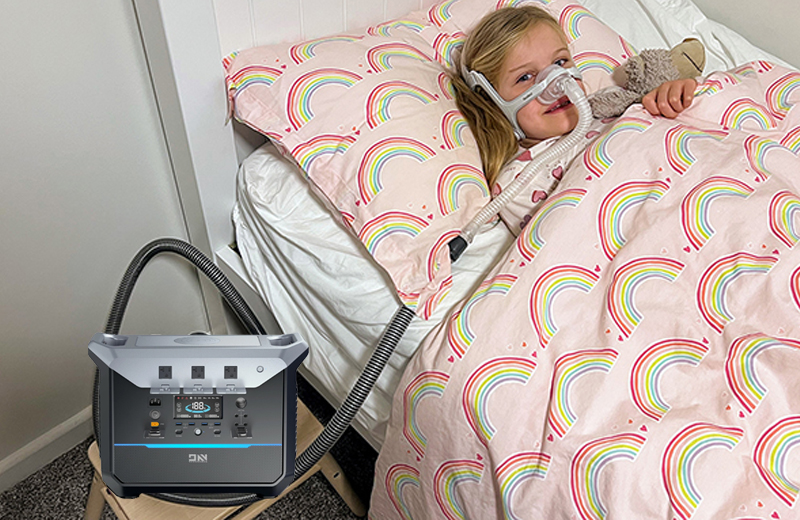
Sleep apnea is a common but serious condition that affects approximately 6 million Americans. People with sleep apnea stop breathing multiple times throughout the night, which leads to fragmented rest and can have dangerous consequences. Every day, about half of the adult population experiences some form of sleep problems. This is particularly true for people who are middle-aged or older. However, response to these difficulties varies from person to person. Some people struggle with falling asleep more than others, while others battle with staying asleep or waking up too early in the morning. People with OSA (obstructive sleep apnea) experience recurring pauses in their breathing during the night; sometimes they don’t breathe at all for up to a minute at a time. These breathing disruptions prevent blood oxygen levels from returning to normal, which can lead to serious health complications if not treated properly – including increased risk of heart attack, stroke, hypertension, and diabetes.
What is a generator for cpap?
A CPAP generator is a device that produces enough power for a CPAP. This device is usually used when there is no standard electrical power source in the vicinity (i.e., in the woods, at sea, in deserts). A CPAP generator is a device that produces enough power for a CPAP. This device is usually used when there is no standard electrical power source in the vicinity (i.e., in the woods, at sea, in deserts). CPAP stands for Continuous Positive Airway Pressure therapy. This machine helps treat sleep apnea by providing a constant airflow through your nose, which forces your throat muscles to stay open while you sleep. The generator is attached to a battery, which is a power source, and will produce enough continuous electricity to keep the machine running. It can be attached to the machine with a lead or by direct connection.
Why do you need a generator for cpap?
If you are a CPAP user, you know that the first few days of usage can be extremely challenging. The noise of the machine is enough to wake a sleeping person in the same room. Meanwhile, the power supply is often a problem. Generators are often used to power CPAP machines. They are usually used in camps, etc. But some types of generators may not be safe for CPAP users. So, one of the most important things you need to know is whether your CPAP machine is safe with the generator in use. If you are a CPAP user, you know that the first few days of usage can be extremely challenging. The noise of the machine is enough to wake a sleeping person in the same room. Meanwhile, the power supply is often a problem. Generators are often used to power CPAP machines. They are usually used in camps, etc. But some types of generators may not be safe for CPAP users. So, one of the most important things you need to know is whether your CPAP machine is safe with the generator in use.
How to choose the right generator for cpap
First of all, you need to know whether your CPAP requires a 110V or 220V standard outlet. Generators can have either of these outlets, so you’ll need to check the frequency before buying. Some machines accept both voltages, but it’s important to realize that using them with 220V outlets might reduce their lifespan. The next thing you need to know is the amount of power your CPAP uses. The best way to find out is to check your machine’s instruction manual. Most CPAP machines use between 7 and 15 amps. Lastly, you need to know what features you want in your generator. Selecting a generator is a lot like choosing a car, so you’ll want to keep a few things in mind. If you’re traveling with your CPAP, you’ll want to find a generator that’s lightweight and portable. If you live in an area where power outages are common, you may want to consider a generator that can run on natural gas or fuel.
Considerations
There are some important considerations to keep in mind when using a generator for CPAP. First and foremost, you’ll want to make sure the generator is safe for use with the machine. Many generators are fine, but it’s important to check your machine’s instructions. You’ll also want to be careful about the placement of the generator. You don’t want it too close to your CPAP machine, as it may cause interference and reduce the machine’s effectiveness. You’ll also want to make sure that you’re aware of how much power the generator is producing. This will help you avoid draining the generator too quickly and ensure that the machine is getting enough electricity to keep running.
Tips
– If you’re traveling with your CPAP machine, it’s important to know whether the generator can run on natural gas or fuel. This will help you avoid power outages and keep your machine running. – If you’re using a portable generator, be careful about the placement of the machine and make sure that there’s not too much interference between the two. – If you’re buying a generator, look for one that produces enough power to run your CPAP machine. Make sure that it can provide enough power and that it’s safe to use with your machine.
Conclusion
If you’re a CPAP user, it’s important to know whether your machine is safe with a generator. You’ll also want to make sure you’re getting the amount of power your machine needs to run properly. Finally, you’ll want to make sure that the generator is placed properly and provides the necessary protection for your CPAP machine.
